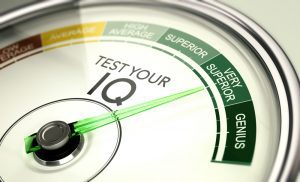Is my child smart?
Whether or not they ask it outright, many parents find themselves wondering this very question.
While intelligence levels can be tested in early childhood, the results won’t be very reliable until the child is around age 12 or later.
After all, it is only in later childhood and adolescence that dominant personality traits and ways of problem-solving reveal themselves.
For a 12-year-old child, the average IQ score is between 77 and 135, with an overall average score of 112.
Now, there are numerous factors to consider when it comes to determining a child’s intelligence, not to mention various testing methods.
The most prominent method of calculating intelligence in both children and adults, however, is by administering an IQ test.
Publicly used now for over 100 years, the IQ test yields a numerical score of up to 200 points (though scoring that high is incredibly rare and indicative of supreme genius), with the majority of people scoring between 100 and 110 points.
That said, IQ averages can vary by age group.
Table of Contents
What is an IQ Test?
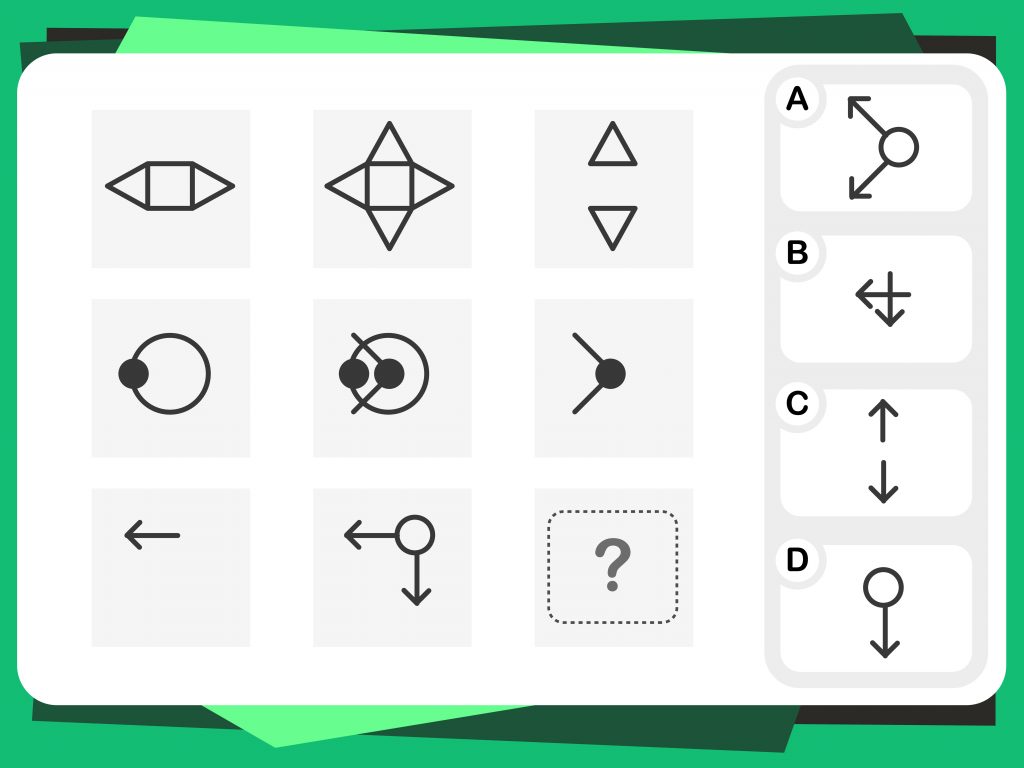
Intelligence has been measured in terms of IQ or “Intelligence Quotient” since 1904 when the first such test was developed by Alfred Binet and Theodore Simon.
The initial test was actually intended for children, as its purpose was to identify those who lacked the mental capacity of their peers in school.
The result was to reveal a child’s mental age rather than their education level, which could then be used to remove those lacking in cognitive ability from schools.
That’s just the tip of the iceberg when it comes to the IQ test’s dark past uses and intents, but the exam itself nevertheless caught on.
Since its introduction in the early 1900s, the IQ test has become widespread in countries all over the world and now exists in several forms.
While the intent is still to gauge mental capacity and cognitive ability, modern IQ tests are no longer used as methods of exclusion from schools.
If anything, one of the test’s biggest purposes is to assess a person’s suspected high-level intelligence instead of preying upon those suspected of lower capabilities.
The term “Full Scale IQ” score is now used more commonly in lieu of intelligence quotient. It is an evaluation of an individual’s cognitive abilities in the following areas:
- Language
- Reasoning abilities
- Processing speed
- Visual-spatial processing
- Memory
- Mathematics
Along with this, it’s worth noting that the test has undergone numerous revisions and has been subject to changing schools of thought.
There is still some debate in modern times over the accuracy and fairness of IQ tests, but the fact remains that they are still among the most prominent psychological and mental ability tests being used today.
IQ Test Question Examples
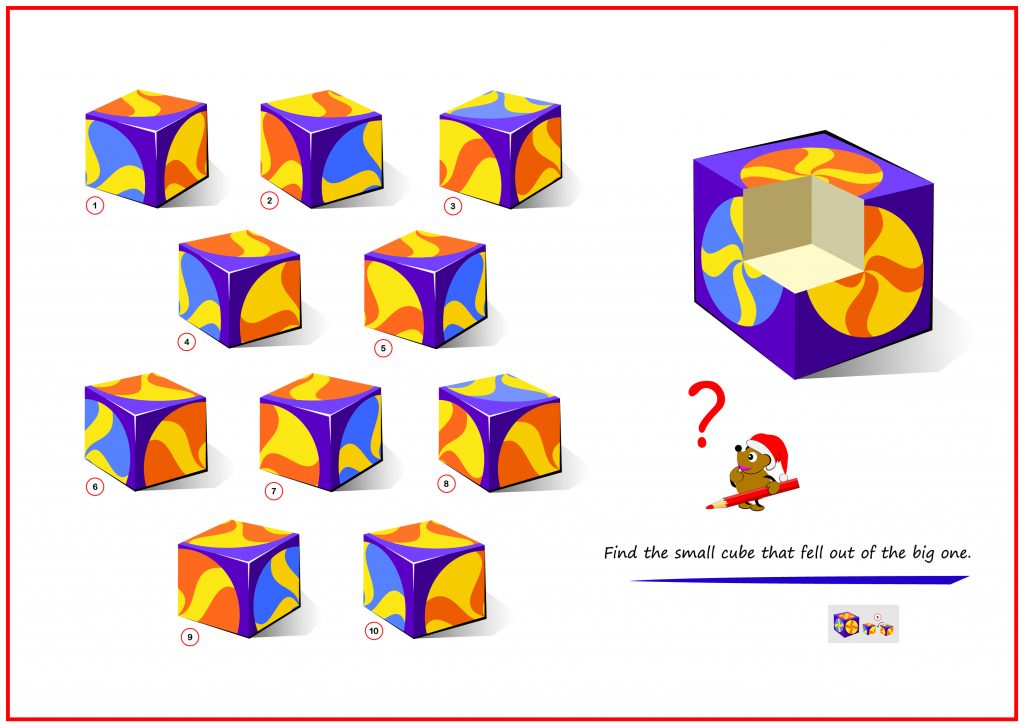
When it comes to intelligence tests administered to youth, the most commonly used forms of the test are the Wechsler Intelligence Scale for Children, the Kaufman Assessment Battery for Children, the Cognitive Assessment System, and the Differential Ability Scales.
Though all IQ tests are revised on a semi-regular basis, the types of questions on each exam generally remain the same.
Unlike the vast majority of standardized test questions in school, IQ test questions are designed to evaluate cognitive skills rather than lesson memorization and trivia-like knowledge.
Examples of IQ test questions for someone who is 12 years old may include the following:
- 3, 7,12,18, 25, 33, 42… — What number logically follows this series?
- There are 25 books on the table, and you took 10 of them. How many books do you have?
- Horse, Cat, Chicken, Bird — Which one of the four animals is the least like the other three?
It’s very important to point out that while free online IQ tests abound and often have similar questions, they should be taken with a grain of salt (many of these “tests” purposely yield much higher than average results).
Only an official test administered by a trained professional or through a specially licensed group can be considered valid.
How Are IQ Tests Given to Children?

Valid IQ tests are given by licensed psychologists or psychometricians (those who measure cognitive ability) in a group or individual setting. However, individual tests are considered to be more accurate.
A 12-year-old child taking this test will typically sit one-on-one in a room with the test proctor who will administer the questions and record the child’s responses.
They will then tally up the results and write a report on their findings. Group tests may involve a more traditional test structure, with everyone in the room recording their own responses that will then be reviewed.
The exact amount of time it takes to complete the test will depend largely on the form of the test given.
For example, the current edition of the Wechsler Intelligence Scale for Children (WISC-V) is intended for children ages 6 to 16 and is expected to last 45 to 65 minutes.
In addition to resulting in a Full Scale IQ score, the Wechsler exam provides five individual primary index scores categorized as Verbal Comprehension, Working Memory, Processing Speed, Fluid Reasoning, and Visual-Spatial.
The purpose of this is to assess a child’s capabilities in distinct areas of thinking. The Wechsler test can also provide composite scores in groups of criteria.
Other IQ tests offer similar organized assessments, while some only do a general overall review.
Reading Child IQ Test Results
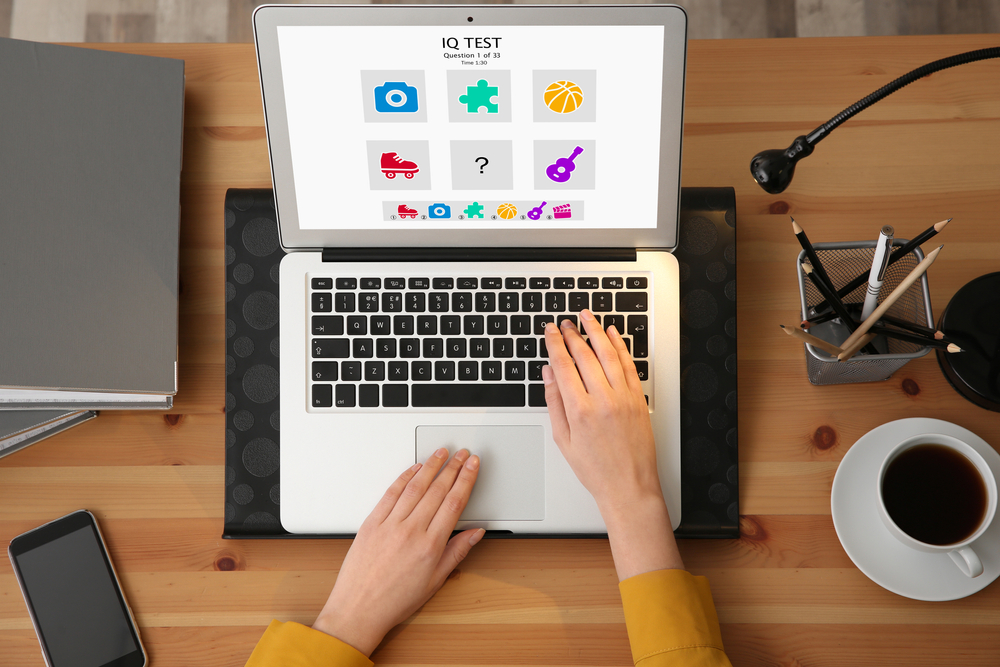
When you first get a look at your child’s IQ test results, the data can be a bit confusing.
Generally speaking, however, a score of below 70 indicates that the child may have limited mental capacity and problem-solving skills, while a score of above 120 suggests superior abilities in these areas.
If the child’s IQ test was organized into individual sections, the results of each may be indicated.
It’s worth pointing out that not every IQ test for children will yield an exact numerical quotient as the result. Some instead offer just a range, while others rank in general categories like “average,” “above average,” or “below average.”
In most cases, it is nevertheless up to the person or group administering the test to sit down with the child and/or their parents afterward to explain the results and what they could mean for the child’s intelligence level or ways of thinking.
Theoretically, there’s no actual limit to how high an IQ score can go. While some extremely intelligent individuals have scored around or above 200 over the decades, someone could technically score much higher.
Both Albert Einstein and Steven Hawking are considered to have had an IQ score of 160. The vast majority of people, however, will score between 85 and 115.
Because the test may be adjusted for youth, this is also where the scores of most 12-year-old children will align.
Can IQ Test Results Shape a Child’s Future?

Dependent on their surroundings and means, different children and adolescents have different kinds of access to IQ tests.
Individual IQ tests in particular can be expensive, meaning many (if not most) children will go the entirety of their school years without taking them.
That said, some schools provide IQ tests to all of their students, while others offer none at all or only extend them to certain children based on specific criteria.
In other cases, it’s entirely up to the parents to seek out a testing center or licensed child psychologist to administer the test to their child.
Either way, if you’re the parent of a 12-year-old child who recently took an IQ test, you may be wondering what can be done with their results.
Some schools, particularly certain private and charter schools, may use IQ test results to tailor education to their student’s specific needs.
In cases where an adolescent’s IQ score is considered impressive, their cognitive ability may be tested further and fostered with extracurricular activities.
That said, the good news is that IQ test results are not typically a “make or break” indicator of your child’s future success.
If a child scores below average, it is often just an indicator that they may need more help in specific areas. Pairing them up with a child psychologist or specially trained tutor can help.
While many parents seek out IQ tests in the hopes of discovering their child is “gifted,” the truth is that the test can be very useful for those whose child may be struggling in school.
Is There Anything Parents Can Do to Increase Their Child’s IQ Score?

Environment and genetics are the two most domineering factors in influencing what a person’s IQ score will be.
But depending on who you talk to, there are various things parents can do early on in their child’s life to promote an increased IQ.
Some parents even play music or math lessons through headphones to babies still in the womb, believing it will help increase their intelligence score.
No conclusive has shown that this will actually increase a baby’s intelligence, but some studies have shown that doing so may help increase brain activity.
If your child is scheduled to take an IQ test, it’s important to realize that studying will often do little to sway the results. There is no reading or writing portion, nor are there trivia questions.
That said, practicing with flashcards that have similar types of cognitive thinking questions that are on the test may help boost your child’s basic problem-solving skills.
While your 12-year-old child will not be expected to study for their IQ test, they should get plenty of sleep the night before and eat a healthy breakfast.
People of all ages tend to test better when they are well-rested and have the fuel they need for the day. Last but not least, it’s crucial to make sure the child is in a comfortable setting for their test.
A child who does not like the test proctor or is fearful of the environment may rush to try to get out of there rather than take the time to figure out their responses to each question.
This is one reason why it is imperative that the test is only administered by someone who is accustomed to working with children.
How an IQ Score Can Change After Age 12

Just because a child of 12 years of age scores a specific number on an IQ test does not mean that it will be their score for life. Research shows that IQ scores can actually change quite a bit over time.
In one study conducted by the Wellcome Trust Centre for Neuroimaging at University College London, 33 adolescents aged 12 to 16 completed IQ tests.
All results ranged from 77 to 135, with the average score falling at 112. Four years later, they were tested again, and the researchers found that the range jumped up to 87 to 143.
Perhaps even more impressively, one-fifth of those tested moved into a new IQ category, from average to below average or vice versa, for example.
These findings (and others like them) show not only that growth can influence change, but that IQ scores, in general, may not be thoroughly indicative of a person’s intelligence.
Can IQ Test Scores Be Taken Seriously?
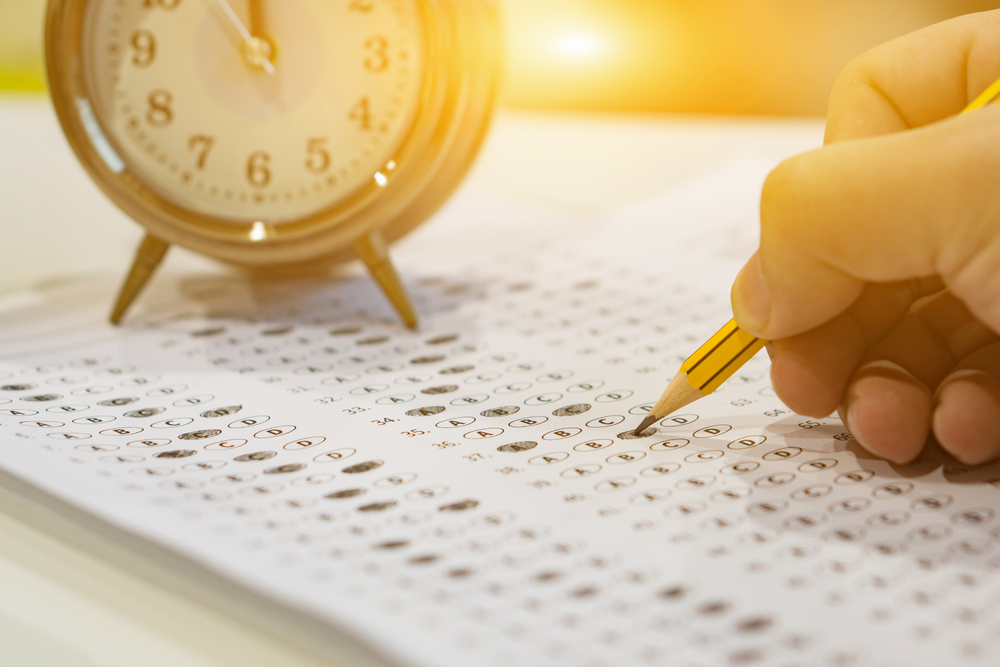
There is great debate over how accurate IQ test scores are.
Even those who do believe them to be valid often disagree over how seriously the results should be taken, especially among children and adolescents whose brains are still developing.
The consensus among experts is that the tests are plagued by at least some degree of bias – children from families that are better off financially tend to receive higher scores, and historically the tests were used to discriminate against certain racial and ethnic groups.
However, most also agree that the tests still carry some merit to them.
For parents, all this means is that a child who scores poorly is not automatically of low intelligence, and vice versa.
Instead, the tests can merely be a useful tool in pinpointing areas of strength and weakness. As studies have shown, in time a 12-year-old student’s scores are likely to change.





